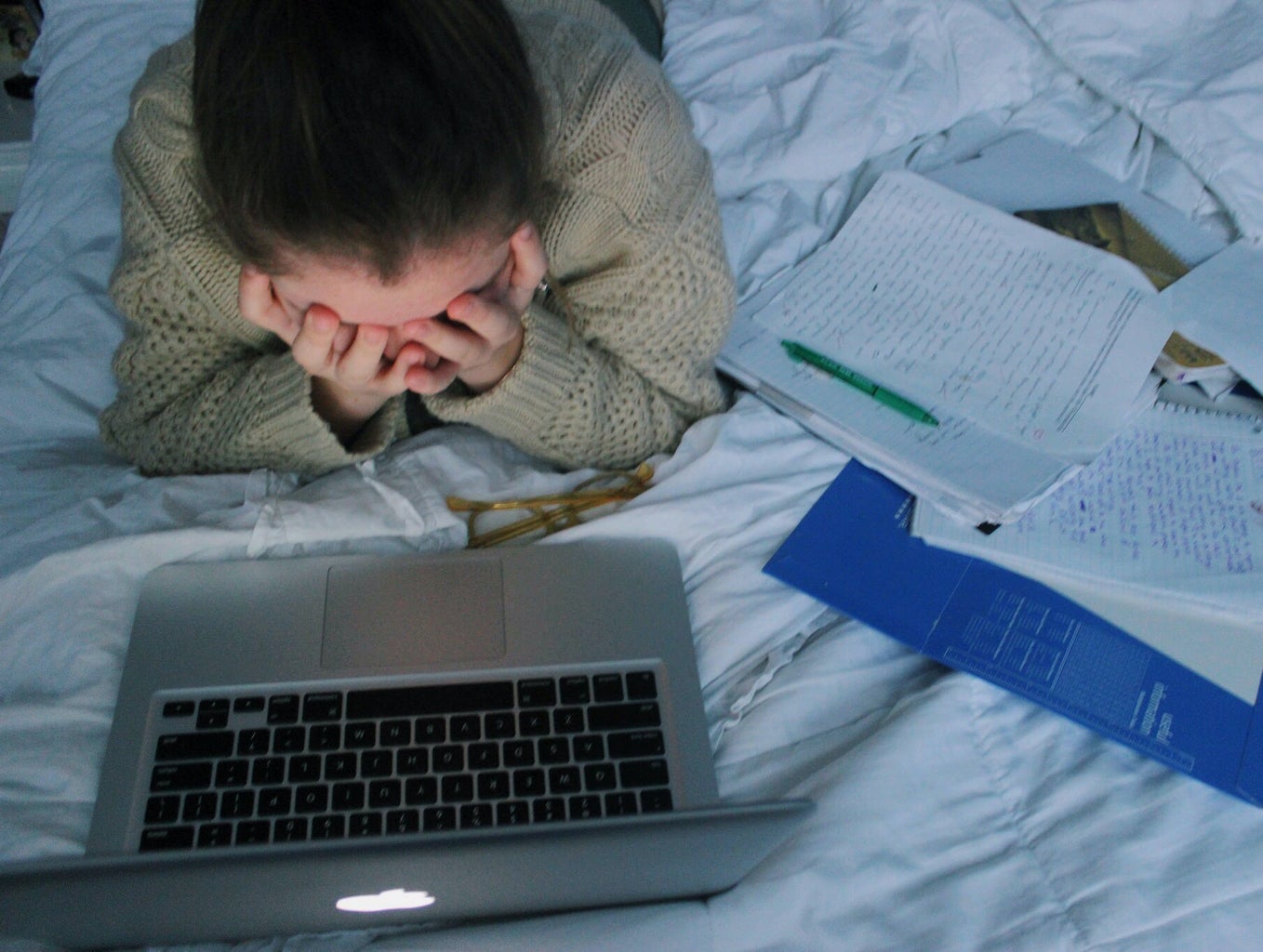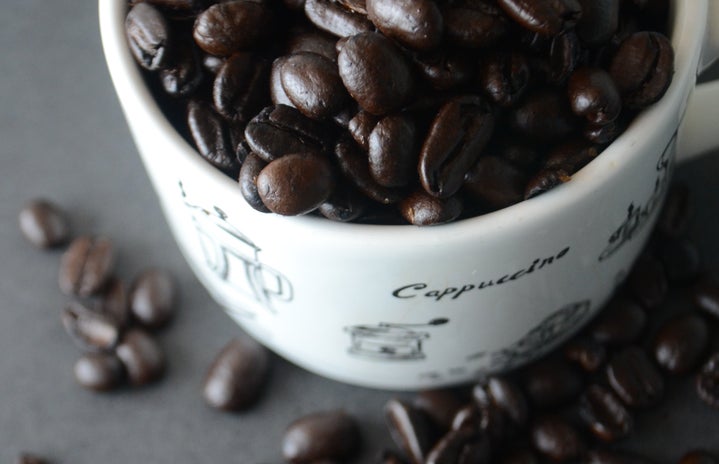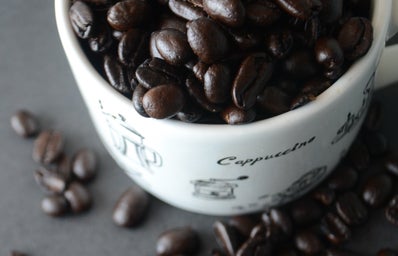Caffeine can be counterproductive—inducing anxiety that prevents focus—but there are natural ways to restore energy.
Most college students, myself included, increase their caffeine intake to ensure productivity when overwhelmed with papers, exams, or projects. Caffeine is a quick fix to fatigue that promotes focus, improves memory and mood. Even though caffeine is a reliable energy source, an excess amount induces symptoms of anxiety, actually hindering productivity.
Energy drinks are the most popular dietary supplement consumed by American teens, perhaps because they are the most reliable caffeinated resource. According to the National Center for Complementary and Integrative Health, around one-third of 12 and 17-year-olds regularly drink them. Energy drinks such as Monster or Redbull contain at least 70 to 240 mg, whereas a cup of coffee contains 100 mg. The overconsumption of caffeine along with artificial sugars can lead to anxiety, sleep deprivation, digestive issues, and dehydration.
Even though the adrenaline produced by caffeine increases attention and awareness, an excessive amount can trigger anxiety or panic disorders. The physiological impacts of caffeine include heart rhythm disturbances and an increase in heart rate and blood pressure. Amped-up behaviors like fidgeting or a racing mind prevent focus and lead to exhaustion. The Diagnostic and Statistical Manual of Mental Disorders (DSM–5) declares symptoms of caffeine-related disorders: nervousness, restlessness, trouble sleeping, fast heart rate and gastrointestinal issues.

Caffeine blocks the brain chemical (adenosine) that normalizes your heart rate and signals when your brain and body feel tired. Tricking your brain and body of its true energy levels over-taxes your capabilities, leading to a “crash” once the stimulant subsides.
Caffeine can disturb your circadian rhythm and sleeping patterns, relying on caffeine even more, to compensate for the lack of sleep. This vicious cycle further strains the process of recovering from stress. You can gain a physical dependency on this drug, leading to withdrawal symptoms if deprived of the substance, such as headache, fatigue, depression, irritability, and trouble concentrating
I have used energy drinks and over-caffeinated myself in the past to pull all-nighters, rush the procrastinated paper, or even just stay awake in class after a long night. However, I have experienced heart palpitations, insomnia, burnout, and difficulty focusing on other assignments when consuming large amounts of caffeine. I built so much dependence on caffeine that a day without caffeine entails headaches and fatigue. To detach from this reliance and rebuild natural energy, I looked for other ways to be productive without feeling anxious. Some examples include sleeping, exercising, drinking water, limiting caffeine intake, switching to herbal teas, taking breaks with assignments, or eating more whole grains, high fiber foods, healthy fats, and protein. I feel less anxious when completing tasks, more energized, and often go days without even needing a cup of coffee in the morning. If you are an avid coffee drinker like I used to be, just remember that you have the power to accomplish tasks, not caffeine.
Work Cited
“4 Ways to Boost Your Energy Naturally with Breakfast.” Harvard Health, 14 Dec. 2019,
https://www.health.harvard.edu/staying-healthy/4-ways-to-boost-your-energy-naturally-w
Alti, Zachary. “Productivity and Caffeine.” Psychology Today,
https://www.psychologytoday.com/us/blog/the-mental-hygienist/202006/productivity-and
“Coffee Health Risks – Harvard Health Publications.” Harvard Health, 1 Aug. 2004,
http://www.health.harvard.edu/press_releases/coffee_health_risk.
Ferré, Sergi. “An Update on the Mechanisms of the Psychostimulant Effects of Caffeine.” Wiley
Online Library, John Wiley & Sons, Ltd, 18 Dec. 2007,
https://onlinelibrary.wiley.com/doi/full/10.1111/j.1471-4159.2007.05196.x.
Harvard Health Publishing. “9 Tips to Boost Your Energy – Naturally.” Harvard Health, Harvard
Medical School, 30 Aug. 2020,
https://www.health.harvard.edu/energy-and-fatigue/9-tips-to-boost-your-energy-naturally.
Magazine, Smithsonian. “This Is How Your Brain Becomes Addicted to Caffeine.”
Smithsonian.com, Smithsonian Institution, 9 Aug. 2013,
http://www.smithsonianmag.com/science-nature/this-is-how-your-brain-becomes-addicte
Mahoney CR;Giles GE;Marriott BP;Judelson DA;Glickman EL;Geiselman PJ;Lieberman HR;
“Intake of Caffeine from All Sources and Reasons for Use by College Students.” Clinical
Nutrition (Edinburgh, Scotland), U.S. National Library of Medicine,
https://pubmed.ncbi.nlm.nih.gov/29680166/.
NIH. “Energy Drinks.” National Center for Complementary and Integrative Health, U.S.
Department of Health and Human Services,
https://www.nccih.nih.gov/health/energy-drinks.
Simpkins, Beth. “Caffeine Withdrawal Recognized as a Disorder.” Johns Hopkins Medicine,
Based in Baltimore, Maryland, 25 Feb. 2013,
https://www.hopkinsmedicine.org/Press_releases/2004/09_29_04.html.



